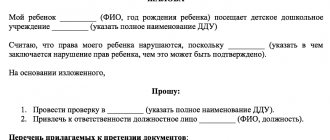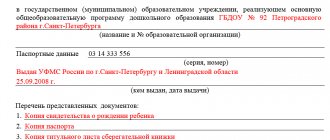It happens that parents, natural or adopted, cannot care for their child for some time: for example, they are seriously ill. In Russia, in such cases, the baby can be sent to an orphanage, which is a great trauma for him. Other countries have long come up with a good solution - a temporary foster family. She takes the child in for a certain period of time until things improve in his main family, and saves him from an orphanage or orphanage. Yulia Kurchanova, a psychologist at the Volunteers to Help Orphans charity foundation, talks about this practice.
Concept of foster family
Citizens who wish to take into family custody a minor or several left without parents have the right to do so, and after formulating and signing an agreement with the PLO, they become adoptive parents. They can become not only legally married people, but also single citizens who do not have financial problems. Children placed into foster care with the help of special education programs become adopted children. From this moment on, the family itself is called adopted and enjoys the corresponding social rights and benefits of this institution.
The legislation of the Russian Federation also provides for other forms of organizing the education of children deprived of parental education (orphans). A foster family differs from them in that:
- Unlike adoption, the relationship between adoptive parents and children is limited in time and confirmed through an agreement with the OPP;
- Unlike guardianship, the law limits the age of adopted children (orphans) and obliges them to enter into an agreement to formalize the relationship.
From the moment a foster family agreement is concluded, a foster family is created, the adoptive parents acquire the rights and responsibilities of guardians, social benefits, benefits, but not the same as those that arise during adoption. Several minors can be transferred to a family for guardianship until their total number (together with their relatives) reaches 8.
Need help from a guardianship specialist?
High-quality consultations for adoptive parents
+7
Guardianship
In this form of state protection, the wards are mainly teenagers aged 14 to 18 years. Guardians must also monitor the implementation and protection of absolutely all the rights and responsibilities of the child, and protect him from abuse by strangers. We must not forget about control of actions that the ward can perform, their approval or prohibition.
In addition to the younger generation, the list of people under care may include people who abuse alcohol, drugs, or games that cause excitement.
The main task of the legal representative is to provide advice to help resolve any issues that have arisen.
Important! Guardianship and trusteeship are often combined into one type. They differ only in the age of the wards.
The following cannot become a guardian:
- incompetent citizens whose legal capacity is determined by the court;
- minors;
- persons deprived of parental rights (or once deprived of them);
- not having a permanent place of residence;
- have or have had a criminal record;
- unstable earnings, income;
- there is a negative experience in adoption or guardianship;
Agreement on foster family
An agreement can be concluded between the adoptive family with the help of the PLO after citizens submit an application and study the living conditions. The application contains a request to transfer a specific child to foster care. An application is submitted at the child’s place of residence. In order for the agreement to be signed without problems with the support of the PLO, the application must be accompanied by a conclusion drawn up based on the results of a professional study, guaranteeing the family’s opportunity to become adoptive parents. The conclusion contains characteristics of the adoptive family. It has a limited validity period - up to 1 year.
An important condition of the foster family agreement is its validity period. With the help of the document, other important aspects of the institution of guardianship are approved, and support for adoptive families is provided:
- The conditions in which the taken minor must live;
- Payments;
- How is the upbringing and development of an adopted child carried out?
- In what form does the adopted child’s education take place with the support of the educational program;
- What rights are transferred through a guardianship agreement to the adoptive parents who took the child, their responsibility for his life and health;
- What are the responsibilities of the OPP in relation to the adoptive family;
- As well as the conditions for terminating the contract.
The reasons and problems by which the “foster family” agreement can be terminated before the end of its validity period are listed in it. In particular, the lack of mutual understanding with adopted children, as well as illness (disability) or lack of financial opportunities for decent maintenance and upbringing of adopted children, a court order - all these are valid reasons for decreeing the termination of the contract and taking the necessary measures. In addition, the appearance of a family wishing to formalize adoption with the support of the PLO entails termination of the contract.
Any financial issues arising due to early termination of the contract are resolved as described in its terms by agreement of the parties, and in controversial situations, disagreements between the parties can be investigated and resolved by court order with the support of the PLO.
To place a minor (orphan) in a foster family, the consent of the educational institution where he was in care must be obtained. If at the time of concluding an agreement with the adoptive family he is already 10 years old, then his consent to the transfer must be asked. If a minor has a brother or sister, and their relationship is important, placement of children in a foster family is possible only together; it is possible to separate them for medical reasons (disabled people).
A minor does not lose all social benefits, allowances, pensions, and payments when transferred to a foster family. If the right to residence, use, and ownership of housing is assigned to him during his life, then it is retained by him, and in the absence of such, the child has the right to receive housing with the support of the public educational institution, as specified in the law.
Adopted children can maintain relationships with relatives at their own discretion, if this does not create problems for the adoptive family, and there is no prohibiting court order.
Establishing contacts with parents (biological), their organization can only be carried out with the consent of the adoptive family, with its help. Disputes arising about this are investigated and resolved in the PLO and the necessary measures are taken.
Step-by-step registration of a foster family
To take a baby from an orphanage or orphanage, you need to follow the following registration steps.
- The collected package of documents must be submitted to the local guardianship authority.
- Department employees must check the submitted documents within 3 days, after which the information is entered into the information database. The next step is to check the applicant’s living conditions.
- The guardianship authorities must issue their approval or refusal of the application within 10 days from the date of submission of the package of documents.
- If the adoptive parents received a positive answer, then the family is sent to an orphanage, where they are introduced to the adopted child and provided with all the information available about him. If applicants deem it necessary, the child may be prescribed an additional medical examination.
- If all the circumstances are positive, the adoptive family submits an application about their desire to take the child into care.
- Documents are being prepared for the transfer of the child to adoptive parents.
- Both parties sign the agreement.
- Social subsidies are awarded.
To adopt a child from an orphanage, you will have to go through a rather lengthy registration procedure
Important ! In order to start the process of registering a child with a foster family, you need to submit an application to the guardianship authorities at your place of residence.
Foster family payments
Every month, with the help of the local budget, foster families are allocated funds, benefits, payments for the maintenance and development of children. Foster family payments allocated for the maintenance of adopted minors and for remuneration of foster parents, as well as social benefits, are established by the law of the subject of the Russian Federation.
All expenses are accounted for in writing, using payment documents. Every year, the foster family reports to the PLO on the expenditure of allocated funds, social benefits, payments, and allowances. These documents are examined, but if the family managed to save money, the money cannot be returned. These are the foster family payments.
The civil legal nature of relations in a foster family
Relations at the institute of a foster family are characterized as businesslike, in contrast to adoption, although in addition to caring for a decent standard of living, education, food, etc. adopted children, adoptive parents are also involved in raising them. But unlike a real (biological) family, the peculiarities of such a concept as a “foster family” lie in the fact that hereditary, alimony and other family relations defined in the RF IC do not arise between parents and minors.
The formation of such an agreement as a foster family, and the signing of agreements with the PLO and the following persons are excluded:
- incapacitated and partially capable by court order;
- deprived or limited in parental rights by court order;
- previously removed from the duties of a guardian due to problems with violation of the contract;
- deprived of the rights of an adoptive parent by court order;
- those who are unable to become guardians due to health problems (disabled people with developmental disabilities).
Rules for appointing a guardian over a child
The general rules for appointing a guardian (trustee) are as follows:
- Requirements for a guardian: an adult capable individual. Not convicted of crimes against health, life, sexual integrity, etc., and not having an unexpunged criminal record. In relation to such a person, the court should not make a decision on depriving parental rights or limiting them. The guardian undergoes a medical examination (which does not pose a threat to the child). As well as special psychological, pedagogical and legal training (except for close relatives of the child). Patients with alcoholism or drug addiction cannot be guardians or trustees. As well as persons of the same sex who registered a marriage in a country where such marriages are allowed.
- When appointing a guardian or trustee, the child’s opinion must be taken into account. From 10 years of age consent is required. As a general rule, the same guardian (trustee) is established over brothers and sisters.
- An appropriate agreement is concluded with the guardian (trustee), which can be either paid or gratuitous. The guardianship authority issues an administrative act on the appointment of a guardian (trustee).
A warded child has the right to be raised in the family of his guardian, to receive decent maintenance, to be cared for, to receive alimony by the guardian and to spend it on the needs of the child, etc.
Formation of a foster family
Establishing the institution of a foster family is possible, but it requires not only the desire of citizens, their warm attitude towards a particular child, but also an application to the PLO. It is necessary to obtain the consent of the educational or medical institution for the transfer of the following categories of minors to a foster family (Clause 1 of Article 121 of the RF IC):
- Orphans;
- Those whose parents are not identified;
- Those whose parents have been deprived of parental rights, are in prison by court order, are incompetent, or are missing;
- Those whose parents are unable to fulfill their responsibilities due to health problems (disabled people with developmental disabilities).
Not only healthy minors can be placed in foster care with the support of a public educational institution, but also disabled, sick, and developmentally disabled people. In this case, the adoptive family must prove that it is able to provide adequate care for such a child and takes appropriate measures.
List of benefits and payments
In 2021, the state undertakes to provide foster families with the following types of preferences, material benefits and benefits.
- Payments equal to 3 minimum wages for each child adopted into the family.
- The right to issue living space as the property of parents.
- Caregivers are credited with seniority for the entire time they cared for a small child.
- Purchasing food products in specialized budget stores.
- The foster family has the right to receive a one-time payment from the regional budget. The amount of payments is individual for each region of the Russian Federation. For 2021, the amount of the one-time benefit is 17,479 rubles.
- After the adopted child completes schooling, the family will be paid monetary compensation in the amount of 79,500 rubles. If the child additionally underwent training in a special center, then another 20,600 rubles are added to the basic amount.
Adoptive parents are entitled to certain payments and benefits
Federal one-time subsidy for a foster child
At the state level, adoptive parents will receive one-time payments in the amount of 17,479 rubles in 2021. They are subject to indexation for social payments.
If a family takes on several children, then an allowance will be paid for each child. However, it is worth considering that more than 8 adopted children cannot be raised in a family.
Important ! In the case where a family lives in an area of unfavorable climatic conditions, where a regional increasing coefficient is used, it is applicable to this payment.
The benefit is accrued only to one of the parents.
The allowance is assigned for each child taken into the family for upbringing.
It is necessary to take into account that the application must be submitted within six months after the child was registered with a foster family, provided that the period has not been changed by law. If the documents and application were not submitted on time, the guardianship authorities may refuse the application.
| Task | What is needed |
| Provide the documents necessary to apply for a one-time benefit | 1. Original passport. |
| 2. Application in writing. | |
| 3. Certificate of adoption. | |
| 4. Photocopies of official documents confirming the legality of the adoption procedure (adoption agreement, death certificate of real parents, photocopy of a document on deprivation of parental rights of biological parents, etc.). | |
| 5. Certificate from the second spouse’s place of work confirming that he did not receive this benefit. |
To receive benefits you need to submit documents
Important ! In some cases, guardianship authorities may make a request to obtain additional information or documents.
The procedure for transferring a child to a foster family
In order to legally organize the transfer of a minor to a foster family, the following conditions and measures must be complied with:
- The minor is under 18 years of age.
- Within 20 days from the acceptance of the application, the PLO is required by law to give an answer about the possibility of transferring the minor (children) to a foster family.
- An examination of the living conditions in a large family showed a satisfactory condition of the living quarters, no problems were identified, and the presence of everything necessary for living and maintaining one more family member.
- The agreement was formulated with the support of the PLO and studied by both parties; an agreement was reached on all points (and on payments), including on the issue of remuneration for adoptive parents.
- The minor is informed about placement in a foster family and does not protest against it.
- Members of the foster family are informed of their responsibility for the life, health, mental state and decent maintenance of the minor.
Required documents
If parents decide to take such a step, the first thing to do is to contact the guardianship authorities with an appropriate petition. And you will need to select a certain set of documents for it. After all, for temporary guardianship it is not enough to obtain a power of attorney and consent from the parents. A minor child, if he or she is 10 years old, can express a personal opinion on this issue. And the PLO will take his opinion into account.
So, to obtain temporary guardianship you will need:
- From the child's parents From the child's parents
- From the child's parents
- Child birth (adoption) certificate
- Written agreement
The PLO staff may want to ask additional questions to the applicant for guardianship. In addition, it is useful for a temporary guardian to establish friendly relations with the ward. The decision of the guardianship authority may depend on his opinion.
Forms and types of foster families
The RF IC defines all 4 forms of the institution of foster families:
- Adoption. A minor is accepted into a large family on equal terms with his own children. Adoption in the eyes of the law is identical to consanguinity. The adoptive parents can change the child’s name, give their last name, or change the date of birth. To adapt a child to a new family, parents are given leave when adopting one child - 70 days, two - 100 days. To maintain the secrecy of the mother's adoption, maternity leave may be granted as a necessary measure. Only one of the spouses or both can act as an adoptive parent. If the minor is already 10 years old, his personal consent to adoption will be required to avoid problems.
- Guardianship. Minors under 14 years of age are placed under guardianship with the support of the PLO, and those over 14 years of age are placed under guardianship. Before the law, the guardian does not have primacy over the adoptive parents, therefore a minor, including a disabled person, can be transferred from guardianship to a family that has agreed to become adoptive parents. The form of organization can be paid (for a fee) or gratuitous. The law establishes preliminary guardianship for a period of 1-2 months for adoptive parents, but in this case the secrecy of adoption is not respected. Biological parents do not lose the opportunity to restore their rights in court if they wish to restore their relationship with the child and continue to support him.
- Adoptive family. The second name of the organization is foster care. The number of adopted children (including disabled people) can be more than 1 - up to 8. Minors live in such a family until they are admitted, and if there are no problems, until they graduate from a vocational educational institution. Children remain orphans in the eyes of the law, who are looked after for a fee by foster parents with the support of the PLO. Those wishing to apply for paid (for a fee) guardianship are subject to strict requirements, including training in specialized courses, as well as an interview at the PLO.
- Family-type orphanage. It can accommodate from 5 to 10 minors. The organizers receive remuneration, government assistance in the form of salaries and funding for the establishment of an orphanage. Work in an orphanage is counted by the organizers as labor and professional experience. Out of turn, residential premises or houses are allocated for the orphanage. Despite the strict requirements for the organizers and the control of the public organization for the residence of children (especially disabled people) in such a house, the law looks at this form of organization as a family, but not as an institution.
Benefits provided to adoptive families
The list of benefits that foster families have the right to use with the support of the PLO includes:
Receiving benefits from the federal budget once a month. The benefit amount is indexed annually and determined individually.
- Benefits for free treatment in sanatorium-resort institutions of municipal ownership.
- Providing free meals for children at school.
- Once a minor reaches 18 years of age, he has the right to get on the waiting list for new housing.
- Benefits for admission to organizations and institutions of vocational education, universities.
- Benefits for disabled people to receive prostheses out of turn.











